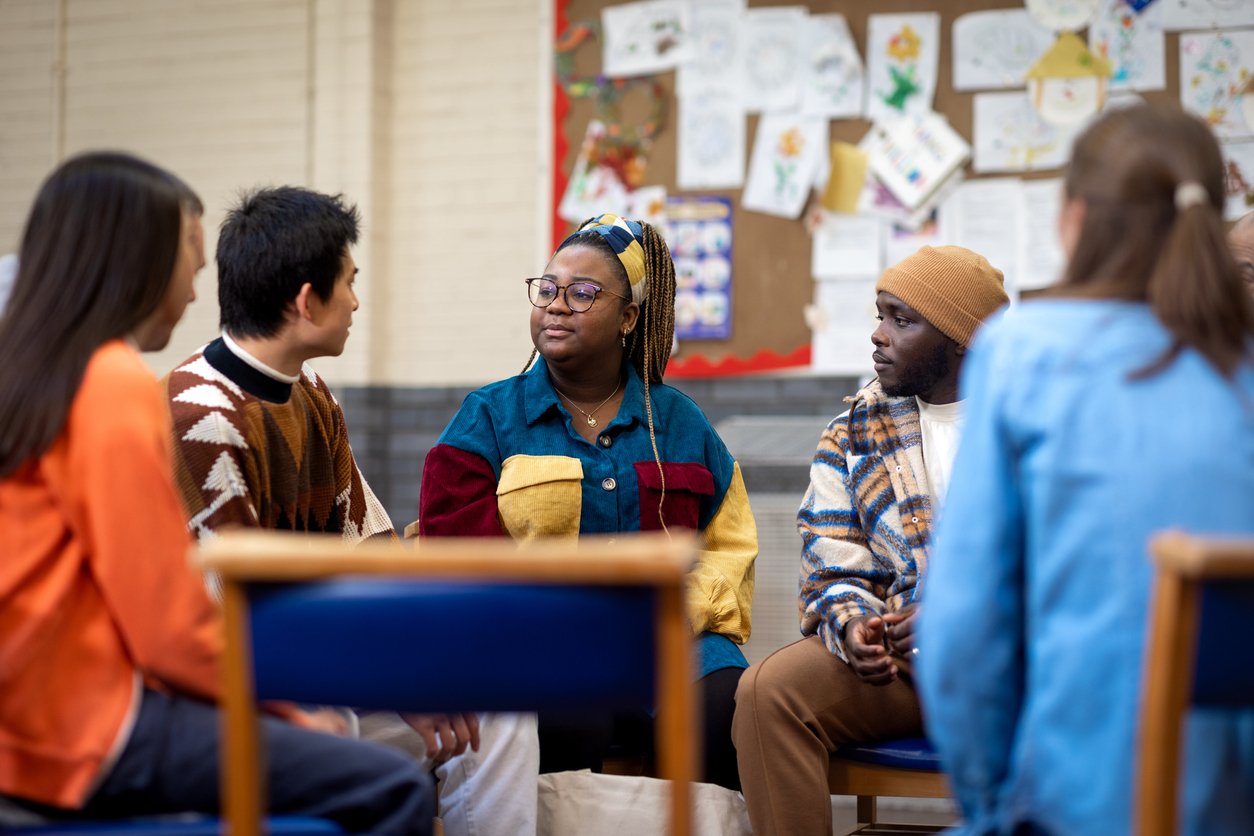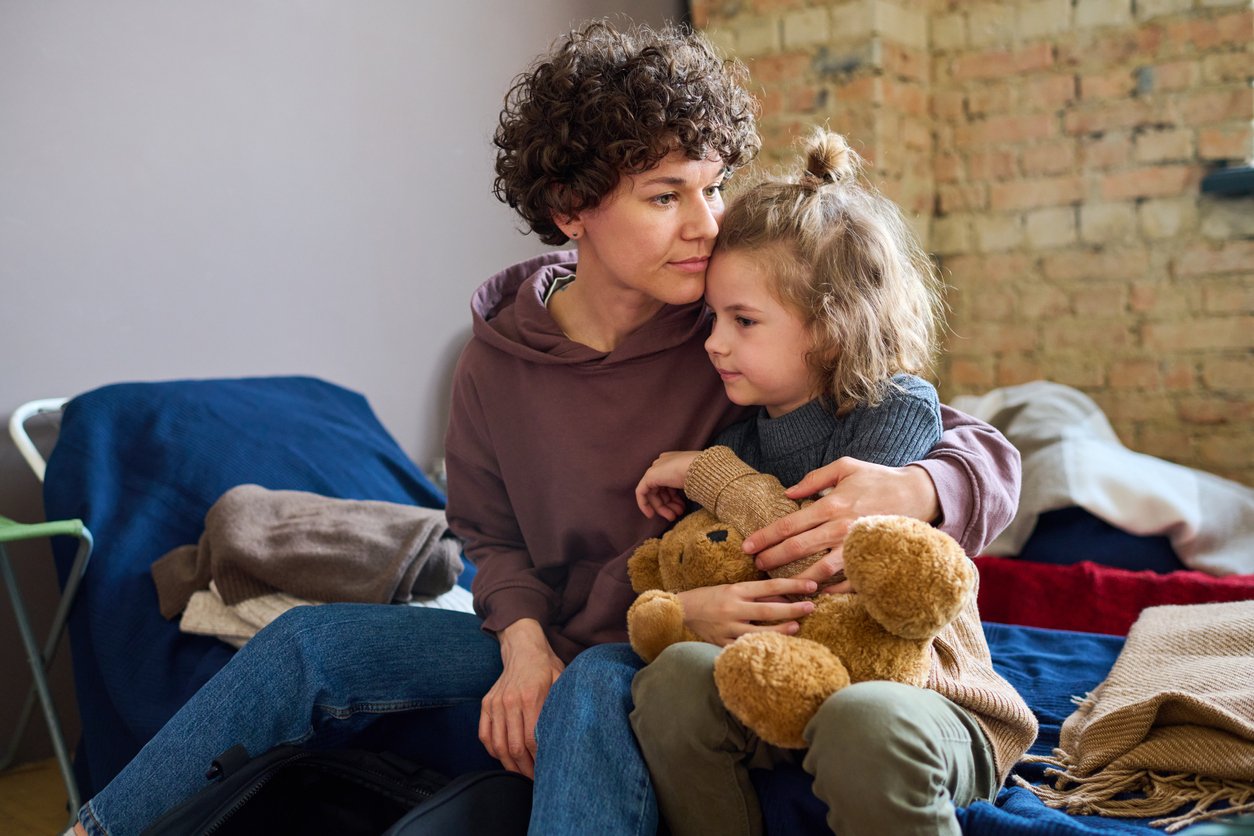Updated October 2025
Community services workers (CSWs) play a very important role in society.
They work directly with vulnerable people who need immediate support, including at-risk youth, survivors of domestic abuse, refugees, and people suffering from addiction and mental health issues.
CSWs connect people with resources, provide counselling, and arrange treatment programs depending on each person's needs.
It can be an incredibly rewarding career path for anyone looking to work with others and help address social issues. Without the support of community service workers, many at-risk people would have nowhere to turn for help. CSWs make a real difference in the community.
In this post, we'll show you eight examples of community services career paths along with descriptions of each position. These are the jobs our own CSW graduates are often hired to fill.
TABLE OF CONTENTS
- Understanding the Impact of Community Services
- Essential Skills for a Career in Community Services
- Diverse Careers in Community Services
UNDERSTANDING THE IMPACT OF COMMUNITY SERVICES
Community services workers significantly contribute to improving communities. They act as advocates, empowering individuals to voice their needs and rights. They provide emotional support, counselling, and guidance to people facing challenges such as mental health issues, domestic violence, or substance abuse.
CSWs connect people with resources like education, healthcare, housing, and employment opportunities. They raise awareness of important issues and organize workshops and events. They also facilitate the creation of social networks and support systems within communities.
During crises, CSWs offer immediate assistance and coordinate relief efforts. They provide specialized support to help people cope with traumatic experiences.
Ultimately, this field is about addressing the social, economic, and health needs of community members.
ESSENTIAL SKILLS FOR A CAREER IN COMMUNITY SERVICES
People who thrive in community services careers tend to share the following skills:
Communication
You need to be able to listen actively, express empathy, and convey information clearly to individuals, families, and community stakeholders. It's important to build trust and rapport. This goes beyond just words—your body language and facial expressions also count.
Empathy
You'll be supporting people who are struggling and who may have had a bad experience with the social system. You need to be able to see things from their point of view and empathize with where they're coming from. You also have to respect differences in beliefs and values within the community.
Organization and Planning
A big part of working in social services is coordinating or even setting up resources for people. Organizational skills are key for managing caseloads, prioritizing tasks, and ensuring that clients receive appropriate and timely support.
Self-awareness
It's important to be aware of your own biases and how they colour your approach to serving others. Being able to critically examine your own decisions and actions will help you communicate more effectively and avoid unintentionally offending someone.
Advocacy and Collaboration
Your job is to advocate for the rights and needs of individuals and communities. Collaborative skills are crucial for working with other professionals, organizations, and community members to address systemic issues, access resources, and create positive change.
Related: Top 10 Skills for Community Support Workers
DIVERSE CAREERS IN COMMUNITY SERVICES
You have a wide range of options when it comes to jobs working with the community. Here are eight top career opportunities in community services:
Community Organizer
Community organizers work to build and mobilize groups of people around common issues or concerns within a community. Those issues could include anything from community policing and crime prevention to income inequality and affordable housing.
Fundamentally, organizers push for grassroots efforts to promote change. That involves planning events, facilitating communication, and fostering collaboration.
Typical responsibilities include:
- Engaging with residents and other stakeholders to identify and understand community needs
- Developing community organizing strategies to address specific goals
- Conducting workshops and meetings to educate community members on relevant topics
- Establishing partnerships with community groups
- Advocating for change with policymakers
 Community organizers seek to get people working together on issues that affect them
Community organizers seek to get people working together on issues that affect them
Child/Youth Worker
Child and youth workers work closely with at-risk children and youth in group homes, drop-in centres, community centres, and youth employment organizations. They develop trusting relationships with youth, provide early intervention programming, and develop personalized plans to address each child’s needs.
Their role is to create a supportive environment that fosters the healthy development of children and young people.
Typical responsibilities include:
- Supervising activities in group homes, halfway houses, and detention and custody facilities
- Preparing assessment reports and case histories
- Supervising children’s visits with parents to ensure safety
- Providing suicide and crisis intervention
- Accompanying youth to appointments and social outings
Crisis Intervention Worker
Crisis intervention workers provide immediate support and assistance to people experiencing acute psychological, emotional, or situational crises. They work in community mental health organizations, crisis hotlines, emergency rooms, and social service agencies. Their primary goal is to stabilize individuals in crisis and connect them with appropriate resources for ongoing care and recovery.
Typical responsibilities include:
- Responding to crisis hotlines, emergency rooms, or on-site situations
- Conducting rapid assessments to evaluate the nature and severity of the crisis
- Employing de-escalation techniques to calm and stabilize people
- Referring individuals to mental health counselling, substance abuse treatment, or emergency shelters
- Collaborating with emergency services, law enforcement, or medical personnel
Related: How Community Services Workers Handle a Crisis
 Crisis intervention workers often staff telephone hotlines and work swiftly to stabilize the situation
Crisis intervention workers often staff telephone hotlines and work swiftly to stabilize the situation
Family Service Worker
Family service workers provide outreach, support, and programming for families in need, particularly those experiencing significant parent-child or parent-adolescent difficulties. They act as part of a care team alongside social workers and early childhood development workers.
Family service workers operate in a variety of settings, including government agencies, nonprofit organizations, schools, and healthcare institutions, with the goal of strengthening family units and promoting the well-being of individuals within those families.
Typical responsibilities include:
- Facilitating family meetings
- Providing in-home support services
- Serving as a liaison for families with other community agencies and professionals
- Supporting families to identify and build natural support networks
- Developing support plans to reduce barriers and prevent intrusive actions such as child apprehensions
Shelter Worker
Shelter workers help run community shelters and emergency housing facilities for vulnerable populations in need of a place to stay. They work with people of various backgrounds and experiences, including those fleeing domestic abuse, homeless populations, at-risk youth, and others.
The goal is to create a supportive and dignified environment that helps with the transition to stable housing.
Typical responsibilities include:
- Interviewing and counselling shelter residents
- Administrative duties (i.e., answering incoming phone calls and emails)
- Supporting health- and housing-focused efforts
- Fostering positive relations with other community social services agencies and resources
- Participating in program planning and development
 Shelter workers put a roof over the heads of people who have nowhere else to go
Shelter workers put a roof over the heads of people who have nowhere else to go
Indigenous Outreach Worker
Indigenous outreach workers provide specialized outreach services aimed at improving the health and well-being of Indigenous community members. Their role is to build trust, facilitate communication, and ensure that outreach efforts are culturally appropriate and responsive to the unique needs of the population they serve.
Typical responsibilities include:
- Acting as a cultural bridge between Indigenous communities and mainstream service providers
- Collaborating with community leaders to understand needs and priorities
- Advocating for the rights and needs of Indigenous individuals regarding healthcare, social services, education, and housing
- Providing education on health and wellness, including traditional healing practices
- Developing cultural programs, workshops, and events that celebrate and preserve Indigenous traditions, languages, and practices
Mental Health Aide
Mental health aides provide mental health, crisis, and facilitation supports to residents of substance abuse centres, clinics, group homes, and other facilities. They often work closely with nurses and medical staff.
Typical responsibilities include:
- Monitoring and recording residents’ strengths, needs, and progress
- Providing crisis intervention
- Facilitating group-based workshops on mental health, addiction, and life skills
- Providing mental health, trauma, addiction, and harm reduction supports
- Teaching behaviour management skills and motivational interviewing
 Mental health support careers give you the chance to make a real difference in people’s lives
Mental health support careers give you the chance to make a real difference in people’s lives
GET STARTED ON YOUR COMMUNITY SERVICES CAREER PATH
Herzing College’s CSW training takes no more than 12 months to complete and includes an internship at a community organization. Our CSW graduates are hired by clinics, not-for-profit organizations, and rehabilitation centres.
Still have questions? Your next step is to speak with an admissions advisor. An advisor will explain how to apply, what to expect in class, financial aid options, class schedules, and more.
Click below to explore the CSW program in more detail and chat live with an advisor. We're here to help!







